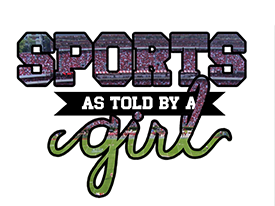With the Winter Olympics set to kick off in just a few days, I spoke with an athlete who has already won on the world’s highest stage. Lauryn Williams is one of just six athletes and the only American woman to medal in both the summer and winter Olympics. Williams first won a silver medal in the 100-meter dash event at the 2004 Olympics. During that year she was the reigning NCAA champion and held the fastest legal wind time by an American at 10.97, the second-fastest time in the world that year. She then went on to win the gold medal in the 4×100 meter event at the 2012 Olympics. Two years later she competed in the 2014 Olympics in the bobsled event with Elana Meyers Taylor; the pair won silver just six months after Williams first started training.
Since she has decided to step away from competing, Williams created her own company “Worth Winning“. Worth Winning aims to help young professionals tackle their biggest concerns about their finances. As a certified financial planner, Williams understands the importance of financial literacy and wants to teach athletes how to make their money last.
Who are you most looking forward to seeing at the upcoming games?
The bobsledders, of course! To see Elana Meyers Taylor, whom I competed with in 2014 be making another run for an Olympic medal after having a baby is so inspirational! There are people who thought that her age, having a child, and previous injuries would inhibit her from competing. However, she proved every one wrong, and I am truly inspired by my teammate, and I look forward to seeing her compete. We also have a Canadian turned American – there was always a fierce competition between them. Now they will be battling it out on the same team. It is a cool story of those trying to obtain the “American Dream” and I think Kaillie Humphries will inspire many. Bobsledding is going to be dope!

Which medal are you most proud of or stands out the most to you?
My first medal is what stands out to me the most. It was my individual medal that I received in 2004 in the 100 meters. This was very exciting to me especially since it was in the home of the Olympic games in Athens, Greece. In 212 it was special because I didn’t compete in the final. I think life is all about the journey and initially I felt like I didn’t really earn the medal. However, I realized how important my contributions were to make sure the team had the chemistry necessary to get on the track to win gold and break the world record. Lastly, I never thought I would be a bobsledder. To lead for three rounds and to come up slightly short was hard, but it was such a cool opportunity to go from summer to winter Olympics. These are all equally important to me.
You started off competing in track and field events. How did you get involved with bobsledding?
Bobsledding is mostly everyone’s second sport, they find it here, there, and everywhere. (Google searches/word of mouth…) I heard about other track athletes trying it in 2012 and I also read a few articles about the sport. Later, I ran into one of the athletes as we were headed to a track and field race. They encouraged me to try it out and I decided to go for it.
What was the biggest lesson you learned from competing on the biggest stage in the world?
Sports transcends all of the crazy political things happening in the world. It is a place where we can all come together and support one another. We crashed our sled prior to the 2014 games and after our last practice, they fixed our sled and as we were coming up over the hill everyone was cheering for us. They were excited that we were able to get our sled fixed in order to compete. To me, this embodied the spirit of the Olympics and worldwide sports. Everyone wanted us to have our opportunity to compete. This is how I want to live my own life, to cheer others on to do their best.

After retiring from sports, you became a certified financial planner and created Worth Winning. What is your goal with your company?
The goal of my company is to inspire young professionals to better organize their finances. I am so excited to be filling a gap, because the financial industry has not offered proper services to young professionals. As an athlete, I was looking for financial literacy. We had fluctuating income and we do not operate in the normal 9-5 world and we need help being able to transition into that world. Most young professionals have questions about employee benefits, how to save for retirement, and how to create a budget, etc. It can be difficult to go about adulting and I get asked all the time ‘why wasn’t financial literacy taught in school if we all deal with money?’ and I think this is where I am bridging the gap.
How important is financial literacy for athletes?
It is huge to be literate because athletes need to make a dollar stretch extremely far. Olympians are not funded so a lot of their earnings come from stipends from charitable giving that each national governing body gets and some of it’s from USOPC. It is usually not a living wage for most athletes so budgeting is important because we need to make the dollars stretch. Athletes also need to look into other ways of generating income. It is also important to realize that there is life after sport. They also need help finding who they are beyond being an athlete and how they are going to do things in the normal adulting world.
What is your best advice to young athletes who want to compete at the Olympics?
I would tell them to find their sport, but don’t be afraid to try other sports. You never know when something else might pan out that wasn’t in your initial plan. Additional sports are also great. Cross-training, you can find new ways to train muscles that may not be used as often in your main sport, making you stronger overall. Realize that you are building a foundation, don’t give up too easily. Great practices make good competitions, and good or bad competitions lead to championships so don’t forget to build a good foundation and do not give up on your dream too soon.









